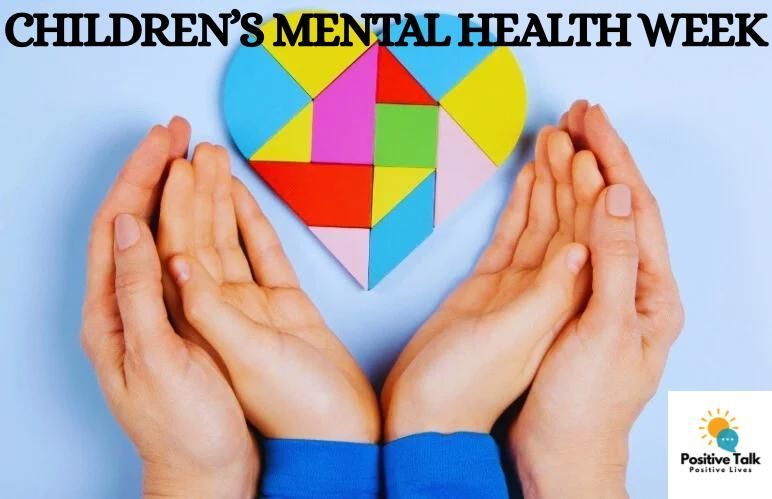Understanding Infidelity & Communication: A Guide by Positive Talk
Infidelity and Communication: Strengthening Your Relationship
Infidelity is one of the most challenging issues a relationship can face. It is often accompanied by feelings of betrayal, mistrust, and deep emotional pain for all parties involved. While infidelity can strain even the strongest partnerships, it is important to recognise that communication plays a vital role in its prevention and rebuilding trust if it occurs. By cultivating open, honest, and effective communication, couples can strengthen their bond, address potential issues early, and reduce the likelihood of infidelity.
Understanding Infidelity: Signs and Reasons
Types of Infidelity, infidelity comes in many forms, and understanding these can help individuals recognise and address potential concerns. The main types include:
- Emotional Infidelity: Developing a deep emotional connection with someone outside the relationship that surpasses the intimacy shared with one’s partner. This type often begins subtly and may not initially seem like a betrayal.
- Physical Infidelity: Engaging in physical acts of intimacy with someone outside the relationship. Physical infidelity is often the most commonly recognised type of cheating.
- Sexual Infidelity: Pursuing purely sexual relationships outside the primary partnership, even without emotional attachment. This often stems from unmet sexual desires within the relationship.
- Online Infidelity: Engaging in online behaviours, such as sexting, online dating, or forming romantic connections through social media. With the rise of technology, online infidelity has become increasingly prevalent.
Common Reasons for Infidelity
Understanding the root causes of infidelity is key to addressing it. Common reasons include:
- Lack of Communication: Poor communication can lead to unmet needs, misunderstandings, and emotional distance.
- Emotional Dissatisfaction: Feeling unheard, unappreciated, or emotionally neglected can drive individuals to seek emotional connection elsewhere.
- Sexual Dissatisfaction: A mismatch in sexual desires or lack of physical intimacy can create frustration and vulnerability to temptation.
- Opportunity and Temptation: Situations where boundaries are unclear or easily crossed can create opportunities for infidelity.
- Personal Factors: Low self-esteem, unresolved past trauma, or a need for validation outside the relationship often contribute to infidelity.
- External Stressors: Financial struggles, work stress, and major life changes can strain a relationship and increase vulnerability to cheating.
Managing Online Infidelity
Understanding the root causes of infidelity is key to addressing it. Common reasons include:
- Lack of Communication: Poor communication can lead to unmet needs, misunderstandings, and emotional distance.
- Emotional Dissatisfaction: Feeling unheard, unappreciated, or emotionally neglected can drive individuals to seek emotional connection elsewhere.
- Sexual Dissatisfaction: A mismatch in sexual desires or lack of physical intimacy can create frustration and vulnerability to temptation.
- Opportunity and Temptation: Situations where boundaries are unclear or easily crossed can create opportunities for infidelity.
- Personal Factors: Low self-esteem, unresolved past trauma, or a need for validation outside the relationship often contribute to infidelity.
- External Stressors: Financial struggles, work stress, and major life changes can strain a relationship and increase vulnerability to cheating.
Mental Health and Infidelity
Mental health challenges can indirectly contribute to infidelity by straining the relationship or altering emotional needs. For instance:
- Depression or Anxiety: Individuals may struggle to communicate their needs or misinterpret their partner’s behaviour, creating distance.
- Low Self-Esteem: A need for external validation can make individuals more susceptible to temptation.
Seeking therapy for mental health concerns not only improves your personal wellbeing but can also strengthen the relationship. Addressing personal challenges reduces the likelihood of misunderstandings and emotional neglect. Therapy is a powerful tool for navigating infidelity, communication breakdowns, and other relationship challenges. For guidance tailored to your unique needs, contact Positive Talk today to work with an experienced counsellor who can help you rebuild trust and connection.
Coping Strategies for All Parties Involved
Infidelity affects everyone involved, coping with its aftermath requires emotional resilience, understanding and often professional support.
Here is how each party can navigate this challenging time:
For the Betrayed Partner
- Acknowledge Your Emotions
- Seek Professional support
- Set Boundaries
- Avoid Rash Decisions
- For the Partner Who Was Unfaithful
- Take Responsibility
- Commit to Transparency
- Engage in Self-Reflection
For Both Partners
- Professional Support
- Practice Patience
- Rebuild Trust
For tailored support reach out to Positive Talk today to speak with a therapist who can guide you through these challenges.
How Communication Reduces the Risk of Infidelity
Open and effective communication is the cornerstone of a healthy relationship. It allows couples to address concerns, express needs, and foster a deeper emotional connection. Here’s how communication helps:
1. Identifying Unmet Needs: Many instances of infidelity stem from unmet emotional or physical needs. By discussing these openly through relationship counselling can be worked on together to find solutions before issues escalate.
2. Resolving Conflicts Early: Effective communication is proved to resolve most conflicts early
3. Building Emotional Intimacy: Sharing vulnerabilities and Emotional closeness can be restored through therapy.
4. Setting Boundaries: Clear boundaries outlined in therapy
5. Encouraging Mutual Understanding: Understanding each other's perspectives
Effective Communication Skills: The 5-Step Challenge
Developing effective communication skills can transform how couples navigate their relationship. Try this 5-step challenge to improve your communication:
- Identify Your Emotions
- Express Yourself Clearly
- Understand Your Partner’s Perspective
- Work Towards Resolution
- Build Communication Skills
Need help enhancing your communication skills? Contact Positive Talk to schedule an appointment today with one of our experienced counsellors.
Challenge Communication Styles and Their Impact
Recognising communication styles can help partners understand and adapt to each other’s needs:
- Passive: Avoids expressing feelings or needs, leading to misunderstandings and resentment.
- Aggressive: Communicates in a confrontational way that can intimidate or alienate the partner.
- Passive-Aggressive: Avoids direct communication but expresses discontent subtly, creating confusion.
- Assertive: Balances honesty with respect, fostering healthy and constructive conversations.
Assertive communication is the goal. It promotes understanding, reduces conflict, and strengthens the emotional connection between partners.
Other Relationship Challenges Linked to Infidelity
Infidelity rarely occurs in isolation. It often coincides with other relationship challenges, including:
- Trust Issues
- Financial Stress
- Unrealistic Expectations
- Imbalance in Effort
- Negative Feelings or Personal Boundaries
- Parenthood/Family Adjustment
Therapies to Support Relationship Healing
Infidelity and other relationship challenges can cause emotional pain, mistrust, and feelings of disconnection. Professional therapy offers a safe, structured environment for couples to address these challenges, improve communication, and rebuild their bond. Below are some highly effective therapeutic approaches to support relationship healing:
1. Person-Centred Therapy: This non-judgmental approach helps individuals explore their emotions, fostering self-awareness and empathy. It encourages mutual understanding and personal growth, making it particularly effective for partners working through emotional distance or unresolved issues.
2. Conflict Resolution Therapy: Focused on teaching practical strategies to handle disagreements constructively; this therapy promotes:
- Clear Communication Skills: Expressing concerns and needs without escalating conflict.
- Problem-Solving Techniques: Collaborating on solutions that meet both partners' needs.
- De-escalation Tools: It’s ideal for couples stuck in cycles of recurring arguments.
Conflict resolution therapy teaches practical skills to navigate disagreements constructively and reach solutions that satisfy both parties.
3. Couples Counselling: A comprehensive framework that helps couples:
- Rebuild trust after betrayal through open communication.
- Address root causes of conflict, such as unmet needs or external stressors.
- Set and work toward shared relationship goals.
This approach suits couples seeking to strengthen their connection or resolve specific challenges.
4. Emotionally Focused Therapy (EFT): EFT focuses on building emotional intimacy by reshaping negative interaction patterns. Key benefits include:
- Strengthening Emotional Bonds
- Breaking Conflict Cycles
- Creating Lasting Change
Other Therapeutic Approaches to Consider
Depending on the unique challenges a couple is facing, other therapeutic approaches may also be helpful:
- Cognitive-Behavioural Therapy (CBT): Focuses on identifying and changing unhelpful thoughts and behaviours that contribute to relationship issues.
- Narrative Therapy: Encourages couples to reframe their story, focusing on strengths and positive experiences rather than solely on challenges.
- Sex Therapy: Specifically addresses issues related to physical intimacy, such as mismatched desires or sexual dissatisfaction.
How to Get Help
If you are struggling with infidelity, communication challenges, or other relationship issues, it’s important to seek help from professionals who can provide guidance and support. Therapy offers a safe space to:
- Navigate difficult conversations and rebuild trust.
- Develop healthier communication skills.
- Address underlying issues contributing to relationship challenges.
- Strengthen emotional intimacy and understanding.
Infidelity and communication challenges don’t have to define your relationship. With the right tools and support, it’s possible to rebuild trust, deepen your connection, and create a healthier future together. You do not have to face these challenges alone. Contact Positive Talk today to schedule an appointment with one of our experienced counsellors. Together, we can work towards healing and building a stronger, healthier relationship.
Article created by Sureya at Positive Talk










